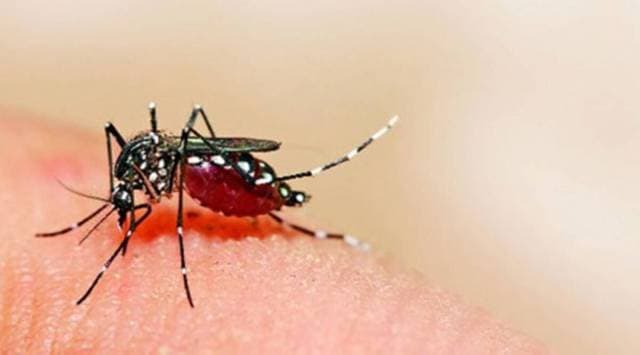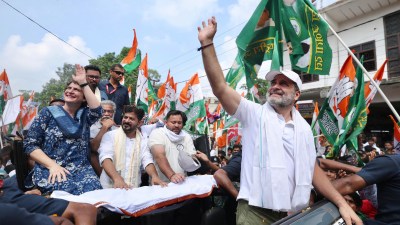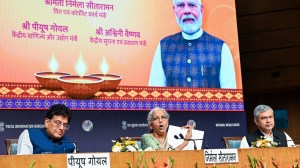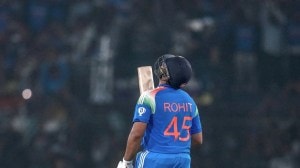Click here to join Express Pune WhatsApp channel and get a curated list of our stories
Dengue vaccine a step closer? India’s first phase 3 trial hits 50% enrolment mark, early data shows no safety concerns
A Phase I and II clinical trial found the vaccine safe and well-tolerated
 The trial has been approved by the Drug Controller General of India and aims to conclude enrolment by October.
The trial has been approved by the Drug Controller General of India and aims to conclude enrolment by October.India has reached the 50 per cent enrolment mark in its first phase III clinical trial for the indigenous tetravalent dengue vaccine, DengiAll, with over 7,000 participants randomised across 20 trial sites. Initial results show no safety concerns for the one-shot vaccine to fight the mosquito-borne viral disease, according to researchers.
Developed by Panacea Biotec Limited under a licensing agreement with the National Institutes of Health (NIH), the primary US federal agency for biomedical research, DengiAll targets all four dengue virus subtypes and has shown promising results in earlier clinical trials.
The study, coordinated by the Indian Council of Medical Research (ICMR), seeks to recruit 10,355 volunteers aged between 18 and 60, with follow-ups extending for two years post-vaccination. Participants will receive either the vaccine or a placebo. The trial has been approved by the Drug Controller General of India and aims to conclude enrolment by October.
What is the dengue vaccine DengiAll about?
DengiAll has a weakened form of all four dengue virus subtypes and has the same virus composition as the vaccine developed by NIH, except for the inactive ingredients. The NIH also evaluated the vaccine in the US and the results were found to be promising in the early-stage clinical studies. A Phase I and II clinical trial conducted in India revealed a balanced and robust immune response across all four dengue virus types. The vaccine was also found to be safe and well-tolerated.
A robust trial
Multiple ICMR institutes are involved in the study to evaluate the efficacy, immunogenicity and safety of DengiAll. The ICMR-National Institute of Translational Virology (NITVAR) and AIDS Research (formerly ICMR-NARI) is responsible for overall trial coordination.
Dr Sheela Godbole, director, ICMR-NITVAR and national principal investigator of the trial, told The Indian Express that the follow-up will be completed in the last quarter of 2027.
According to Dr Abhijit Kadam, national co-principal investigator, healthy adults in the 18-60 year age group are being screened and randomised to receive either the dengue vaccine or a placebo (2:1). “They will be followed up for two years,” he said.
How will the vaccine help?
Dr Suchit Kamble, principal investigator for the NITVAR clinical trial site, explains that the vaccine would help in prevention of a disease that has no treatment. “Some of the infections could result in severe manifestations like bleeding and sudden drop in blood flow and may threaten the life of the patient,” he said.
Where are the trial sites?
The 20 trial sites are located in the following cities: Chennai, Pune (with two sites), Mysuru, Hyderabad, Puducherry, Kochi, Jodhpur, Ranchi, Kolkata, Aligarh, Patna, Rohtak, Ludhiana, Bengaluru, New Delhi, Bhubaneswar, Rishikesh, Guwahati, and Faridabad. The research teams at these sites come from well-known medical institutions, including three affiliated with ICMR.
What’s India’s dengue load?
Dengue fever is one of the top 10 threats to global health, according to the World Health Organisation (WHO). India accounts for a large fraction of global dengue cases and the disease is endemic (regularly occurring within an area or community) in certain regions.
Data from the National Centre for Vector Borne Diseases Control, Ministry of Health and Family Welfare, shows that till March this year, around 12,043 dengue cases were reported, while 2.3 lakh cases and 297 deaths were reported in 2024.
Click here to join Express Pune WhatsApp channel and get a curated list of our stories



- 01
- 02
- 03
- 04
- 05





























